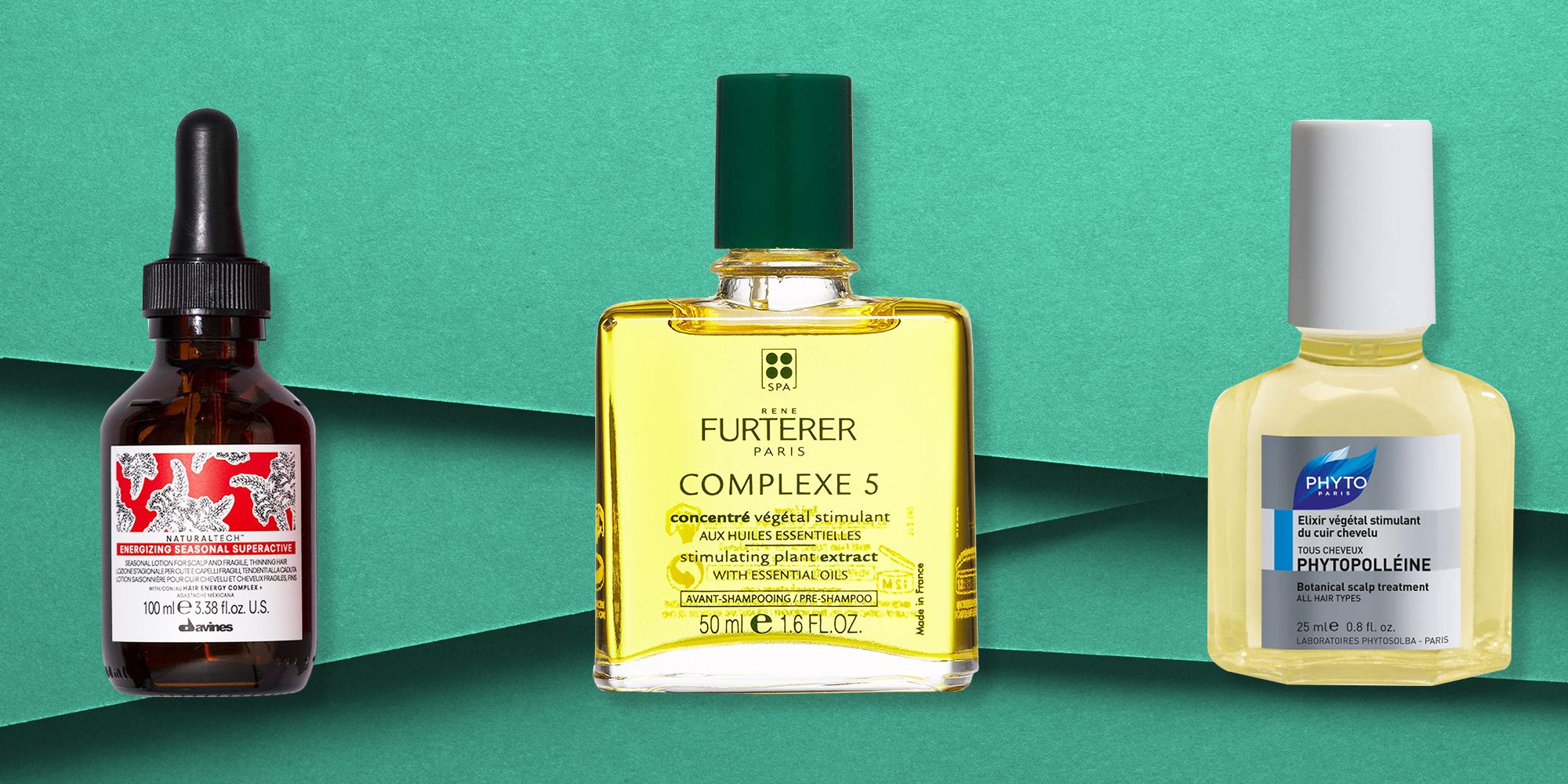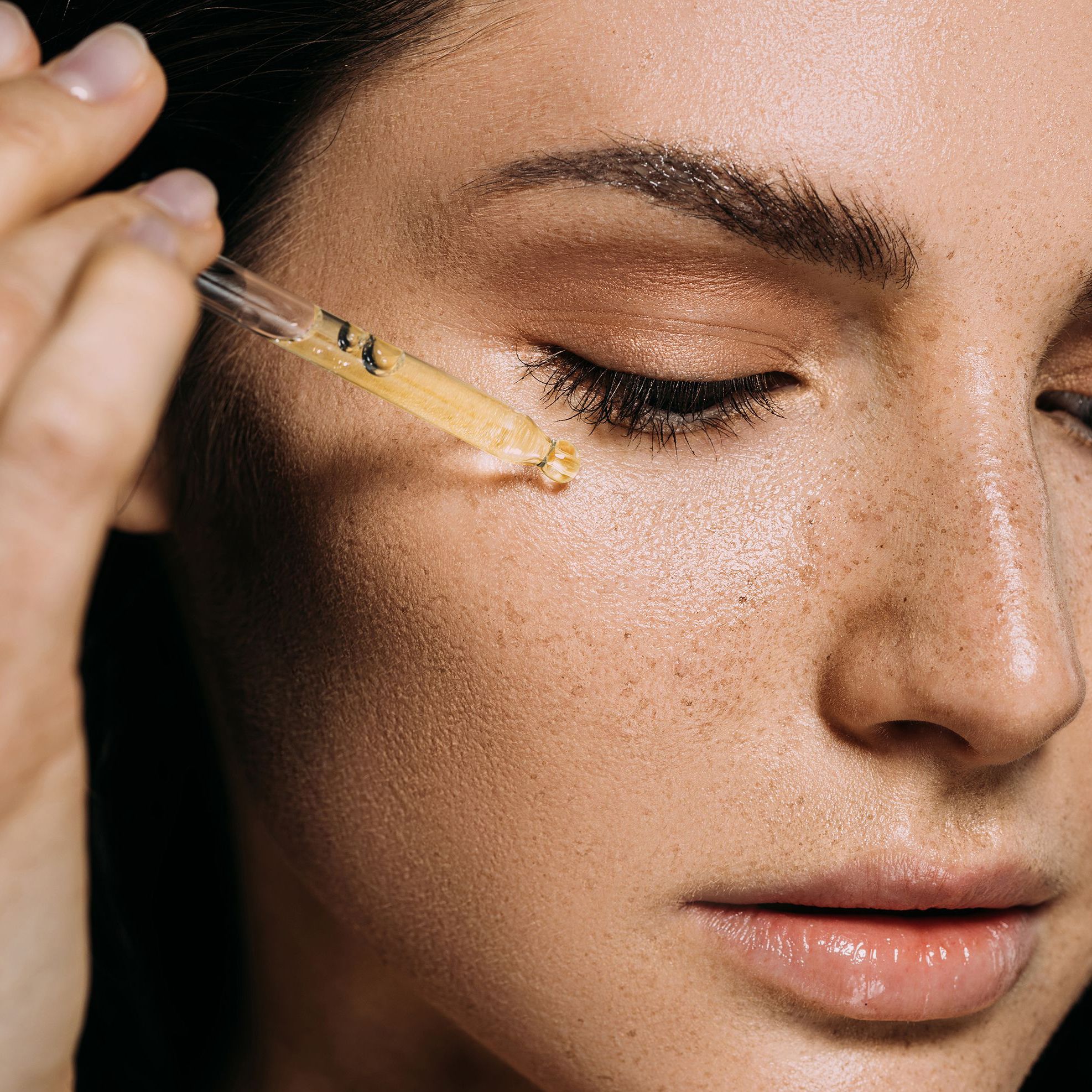These Are The Best Essential Oils For Headache And Migraine Relief
Essential oils have all kinds of awesome health benefits. Not only do they smell amazing (and probably mentally transport you to the spa), but when used as aromatherapy, they can reduce anxiety, boost your mood, help you sleep, and may even reduce inflammation in the body.
The plant-extracted, highly concentrated liquids can be rubbed on the skin and inhaled, put in a diffuser and breathed in from the air, or placed on a pendant so you can smell them throughout the day. No matter how you prefer to use them, one of the coolest benefits of essential oils is headache relief. Yup, if you’ve got a throbbing head or a major migraine, inhaling essential oils could be the remedy you need, says Nancy Rodgers, a massage therapist and certified aromatherapist in the integrative medicine department at Mayo Clinic.
So, uh, how exactly does smelling an essential oil relieve a headache?
They work like this: “Essential oils are quickly absorbed by smell receptors that are linked to the limbic system, which controls heart rate, blood pressure, breathing, and stress,” Elizabeth Ko, MD, medical director of the UCLA Health Integrative Medicine Collaborative and assistant clinical professor of medicine of the David Geffen School of Medicine at UCLA, previously told WH. Basically, certain oils can trigger responses in the body that relieve anxiety and tension and promote relaxation, all things that can trigger headaches and migraines.

In fact, some smaller studies have found that people had less headache pain after they applied peppermint and lavender essential oil to their skin. One study even found that there wasn’t a significant difference between using peppermint oil for reducing pain and taking acetaminophen (a.k.a. Tylenol). Pretty cool.
How do you actually use essential oils for headaches?
If you want to use essential oils for headaches, here’s how to apply them: by adding a few drops to a cold washcloth, which you can then apply as a cold compress to the head or a warm compress to the back of the neck (ahhhh), or by adding a couple drops to a cotton ball and waving it under your nose.

There are a few things you should know when considering which essential oils to buy and use, says Rodgers. “It’s important to do your research on the companies you’re considering buying from to make sure the oils are good quality and will be effective, and to look for organic oils that are pure with no additives,” she says. “Make sure the label doesn’t just say it’s a therapeutic oil; it should tell you the name of the plant, including the latin version, the country of origin, and how it was distilled.”
If the oil is coming in contact with your skin, it’s also important to mix it with a carrier oil—like almond or jojoba—to dilute it, she says. Some of these oils do have side effects in certain populations (more on that below), so it’s important to check with your doctor to make sure the oil you want to use is safe for you.
So which essential oils are best for headaches in particular?
These are the oils that Rogers recommends for relief.
What are the potential side effects of using essential oils for headaches?
Some people who suffer from headaches and migraines are sensitive to strong scents, so it’s best to start slowly when using essential oils and use only very small amounts, so as not to create an overwhelming smell.
Some of the above oils do come with risks and contraindications. Peppermint oil, for example, should never be given to children or people with heart disease because of its chemical makeup. Rosemary oil shouldn’t be used by pregnant people, or people with high blood pressure or epilepsy, because it comes in three different species that can have different effects on the body. Finally, lemon oil is phototoxic, so you should be careful when going outside if you’ve applied it to your face or other exposed skin, as it could lead to a bad sunburn, says Rodgers.
In order to ensure the oil you’re using is safe for you, check with your doctor before turning to it as a headache remedy.
The bottom line: Multiple essential oils, particularly lavender and peppermint oil, can be used as a headache remedy when inhaled from a diffuser or applied to the skin with a carrier oil. But check with your doctor beforehand to find out if the oil you’d like to use may cause any adverse side effects for you.
Source: Read Full Article
